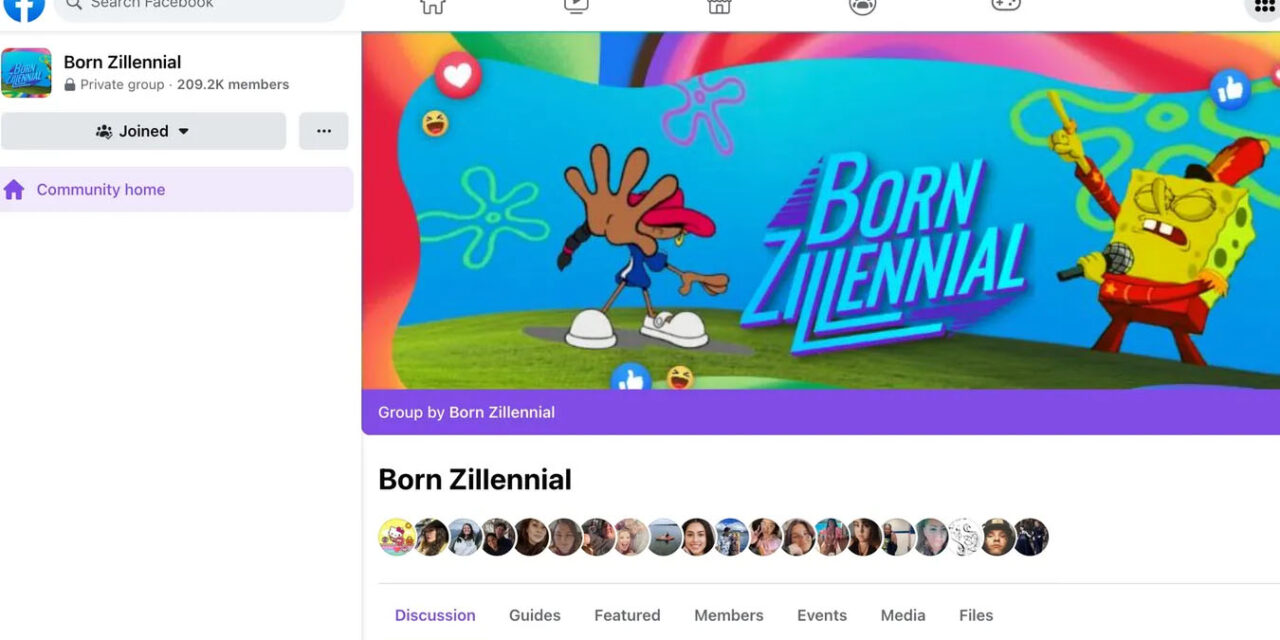Born Zillennial/Facebook
ByAndrew Adam Newman
Source: www.retailbrew.com, July 2023
Older Gen Zs and younger millennials who feel mislabeled have claimed a new moniker as their own, and marketers are taking note of their wads of disposable income.
It can be lonely on the cusp.
If you’re an older Gen Z, for example, maybe there’s a pair of skinny jeans that still look so cute on you, or you still part your hair on the side rather than the middle, despite your fellow Zoomers berating millennials for these supposed aesthetic aberrations.
So it should come as no surprise that some older Gen Zs and younger millennials who don’t feel at home in either group have coalesced under a new banner: zillennials. (Portmanteaus to the rescue!)
Millennials are generally defined as being born between 1981 and 1996 and Gen Z between 1997 and 2012. Zillennials tend to identify as roughly the middle of that timeline. Deborah Carr, a sociology professor at Boston University, told CNN they were born from roughly 1992 to 2002, making them about 22 to 32 today, though there is no academic consensus about the timeline.
Born Zillennial, a private Facebook group that began in 2020, has more than 209,000 members. You might be a zillennial, the group’s about page suggests, if you remember “accidentally clicking the Internet on your flip phone and trying to close it before it starts charging you for surfing the web,” if you prized “the bright orange rugrats VCR tape,” or if you “nearly broke your ankles with a Razer scooter.”
In 2020, the year he graduated from college, the group’s founder, Matt Duffy, said in an introductory video that he launched the group because he “felt lost between two rigidly defined generations.” Thanks to the popularity of the group, Duffy continued, “I feel seen because you guys feel seen right now.”
Now brands increasingly are seeing zillennials, too, and assessing what makes them tick…and what makes them shop.
Middle ages: “Not quite the Myspace generation, but not the TikTok generation either, zillennials spent their tween and teen years in the 2010s, when social media was on the rise but not yet in its heyday,” USA Today wrote in May.
Meagan Loyst is the founder and CEO of Gen Z VCs, but even Loyst, who was born in April of the Gen Z cut-off year of 1997, has never felt entirely situated in the generation. She told us in 2022 that she was an “Elder Gen Z,” but does she consider herself a zillennial as well?
“Yes,” she responded when we interviewed her for this story. “For sure.”
Among her more millennial traits, Loyst told us, was playing Club Penguin, a multiplayer online kids’ game introduced in 2005, and still remembering the home phone numbers of elementary school friends, whereas younger members of her Gen Z cohort would have no experience with a ground line.
“I had a string of boyfriends in like, sixth grade and they would call me on my home phone,” and then she would take their calls by bringing the wireless phone upstairs, Loyst recalled.
Brands should be considering the zillennial segment, Loyst said, because “no niche is too niche.” She also said with the increasing interest in nostalgia marketing, brands should be cognizant of what triggers nostalgia for those ’90s babies. A BuzzFeed listicle unearths such zillennial artifacts as growing up with VHS tapes, Bratz dolls, MP3 players, Tamagotchis, and a family computer and printer at home.
YOLO tango: In January, a PYMNTS headline declared that zillennials represent a “prime retail opportunity.”
The article, based on a PYMNTS study, said zillennials account for about 30 million consumers in the US, and that 34% of them still live at home.
But unlike much of Gen Z, who range from elementary-school to college age and tend to live at home, “54% of zillennials are fully employed and 12% are employed part-time, making them much more like millennials than Gen Z in terms of employment,” the report stated.
In February, the Daily Mail labeled zillennials as “the YOLO generation” that “moved back to the ‘Hotel of Mom and Dad’ so they can splurge their money on designer handbags and TEN vacations a year instead of rent and mortgages.”

